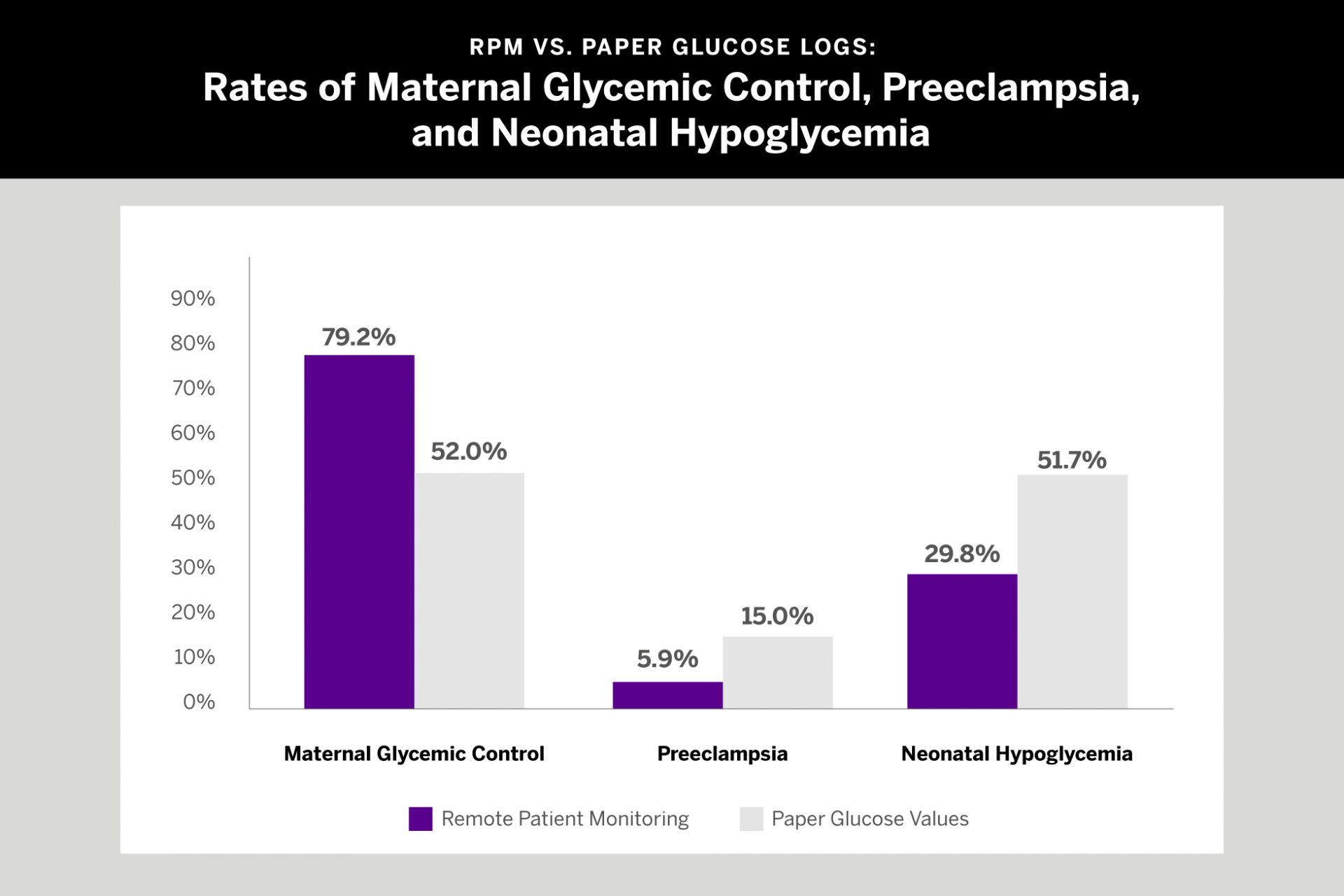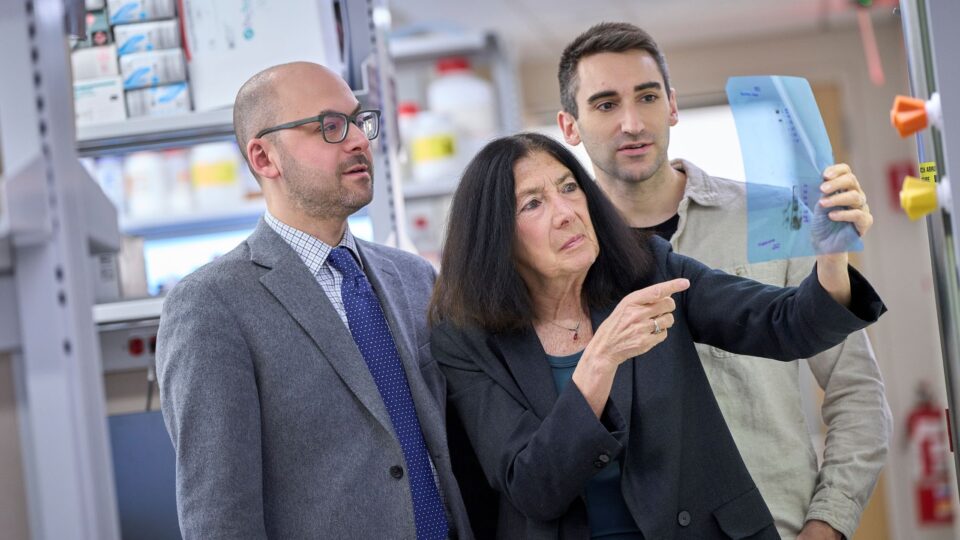Diabetes is one of the most common medical complications in pregnancy with gestational diabetes impacting an estimated 2 to 10 percent of pregnancies in the United States. Poor glycemic control increases the risk of congenital malformation, pregnancy loss, and perinatal morbidity and mortality. Studies have demonstrated that optimal glycemic control during pregnancy can reduce these complications, but pregnant patients are faced with the challenges of attaining proficiency in diabetes surveillance and management in a very short time frame.
In February 2020, the Division of Maternal–Fetal Medicine at NYU Langone Hospital—Long Island, in collaboration with NYU Langone’s Medical Center Information Technology (MCIT) team, implemented the use of a remote patient monitoring (RPM) platform for at-home monitoring of patients’ glucose blood sugar levels. Eight months later, the division also launched the Postpartum Blood Pressure Remote Monitoring Program to conduct at-home blood pressure monitoring after delivery.
In a retrospective study of 533 patients managed through the Diabetes in Pregnancy Program, director Hye J. Heo, MD, associate professor of obstetrics and gynecology and a physician informaticist, and colleagues compared the outcomes of 173 patients previously monitored via paper-based blood glucose logs with those of 360 patients managed through RPM tools after their program’s launch.
“Leveraging remote patient monitoring technology for management of diabetes in pregnancy reduces obstetric complications and improves neonatal outcomes.”
Hye J. Heo, MD
The study found that during their pregnancies, those who monitored blood sugar levels through the RPM platform were significantly more likely to achieve glycemic control in the target range at the time of delivery, and achieved target range sooner than patients managed with the paper logs. The RPM patients had lower rates of preeclampsia, and their infants had lower rates of neonatal hypoglycemia within the first 24 hours of life. Based on the combined results, Dr. Heo and her colleagues concluded that RPM for managing diabetes during pregnancy is superior to the traditional paper-based approach.






